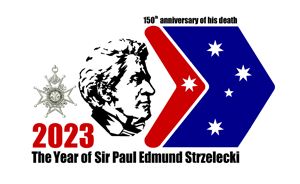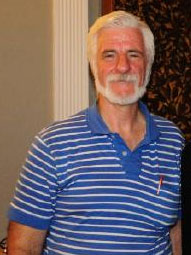Felix Molski, a committee member, made a discovery while conducting some research recently. He shares his “Eureka!” moment in this entertaining anecdote that shows some of the work that Kosciuszko Heritage is doing.
(Felix’s most recent publication was the book The Best of Human Nature: Strzelecki’s Humanitarian Work in Ireland; find out more about it by clicking here.)
Felix the ferret found it! In the process of putting together a slide show about Sir Paul Edmund Strzelecki’s great humanitarian deeds at the time of the Great Hunger in Ireland in the mid to late 1840’s, I focused on this Strzelecki quote speaking to John Bright: ‘If the Devil himself exercised all his ingenuity to invent a scheme which should destroy the country, he could not have contrived anything more effectual than the principles and practices upon which landed property has been held and managed in Ireland.’
I found it in D J Hickey & J E Doherty, A New Dictionary of Irish History From 1800. It’s one of the 300 or so books I bought in the US in 2012.
It troubled me that the author’s provided no reference for the quote. From what I could remember, Strzelecki left Ireland sometime in September of 1848. Was it a mistake? I trawled through my extensive Strzelecki resources and could not confirm the quote anywhere. Being intensely inquisitive it irritated me that I couldn’t corroborate the quote. Searched for the authors online but no luck; maybe I could try to contact them through their publisher.
Irritated till today; I twigged to it – John Bright of Cobden and Bright of the ‘Anti-Corn Law League’. In my distant past I used to teach high school economics and Cobden and Bright were an essential source of arguments in favour of Free Trade. A quick check of the neglected economics corner of my library and I pull out five John Bright tomes. No ‘Strzelecki’ in the index of any of them. Drats! Oh well – all I can do is read all of Bright’s references to the Irish famine and maybe I will stumble on the quote. If not maybe I will learn something new.
Nothing in the first four, but there it is on page 105 of Diaries of John Bright, William Morrow & Co. Kraus Reprint, 1971, edited by R A J Walling. Part of Bright’s diary entry for September 7th, 1849 when he was in Dublin on his Irish Tour:
| “Called on Count Straletski at Reynolds Hotel. Count Straletski: ‘If the Devil himself exercised all his ingenuity to invent a scheme which should destroy the country, he could not have contrived anything more effectual than the principles and practices upon which landed property has been held and managed in Ireland.’ Is greatly in favour of tenant compensation; it would stimulate labour; would absorb the surplus labour now idle in the workhouses.” |
Dear reader, it may seem silly to you, but for me I feel the same as a prospector finding a nice nugget of gold – overjoyed! But wait a moment – September 1849 is confirmed – can it be reconciled? I peruse Paszkowski’s chapter about Strzelecki in Ireland. Page 247, Sir Paul Edmund de Strzelecki:
| “The final feature of his activities on behalf of the Relief in Ireland was his article in The Times, entitled ‘Irish Distress’, published on October 19, 1849, but originally dated ‘Athenaeum Club, October 3’. The article was directed to the subscribers of the extra relief bounty, destined mainly for the districts of Connaught and Munster. Strzelecki went there ‘during June, July, August and part of September’ travelling ‘2,700 miles’. Therefore his combined sojourns in Ireland amounted to nearly twenty-four months.” |
It all fits. Another nugget for Felix the ferret! Now all there is to do sometime soon is to search the internet for an online archive of the Times (London), October 19, 1849, p5 column 3. Life’s good! Also, if you haven’t noticed, I love to alliterate.






